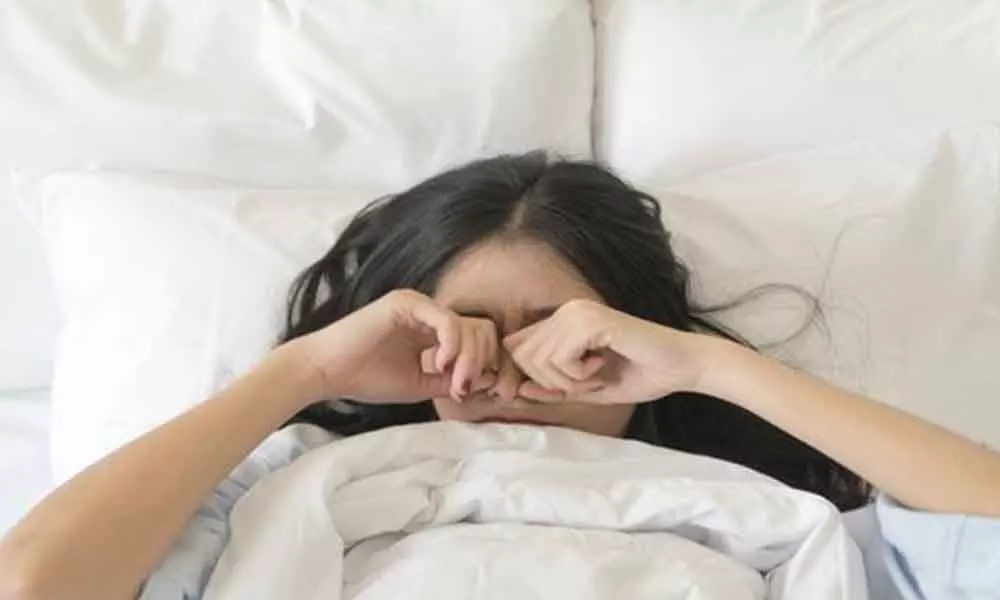Live
- Irregularities in TUDA under vigilance scanner
- ‘Pushpa-2’ row: Celebs & politicos fail to act fairly
- Learn from fighting spirit of women bravehearts: VHP VP
- BJP MP Arvind, MLA Sanjay Kumar meet CM Revanth
- Rapido partners with L&TMRHL to provide discounted rates
- Kisan Diwas 2024: A Day Dedicated to honor our Farmers.
- Axed ACP takes the wind out of Pushpa hero’s sails
- Tender apology to CM, mantri tells Allu Arjun
- CM condemns attack on Allu Arjun’s house
- Allu Arjun’s house attacked, police arrest 6 persons in city
Just In
A face mask may help overcome breathing problems during sleep: Study


A face mask can improve breathing in people suffering from the condition sleep apnoea, which is related to snoring, according to a study assessing more than 200 patients.
A face mask can improve breathing in people suffering from the condition sleep apnoea, which is related to snoring, according to a study assessing more than 200 patients.
The researchers, including those from Imperial College in London, said sleep apnoea affected more than a billion adults globally, causing their airways to become too narrow during sleep. People briefly stop breathing many times throughout the night, triggering loud snoring, and frequent awakening from sleep, and subsequent daytime sleepiness, they added.
The study, published in the journal The Lancet Respiratory Medicine, was conducted at 11 National Health Service (NHS) sleep centres across the UK, including the Royal Brompton & Harefield NHS Foundation Trust, and is one of the first to investigate the use of the treatment for mild cases of sleep apnoea. They investigated the use of a mask - called a CPAP machine - that fits over the nose or mouth and gently pushes air into the mouth and throat, keeping the airways open. As part of the study, 115 patients were asked to use the CPAP for three months, while 118 received standard care for mild sleep apnoea, including advice on improving sleep and avoiding anything that can exacerbate the condition, such as drinking alcohol before bed. "We are seeing increasing cases of sleep apnoea, and in a wide range of patients. Although the condition was previously thought to mainly affect overweight men, we now know it also strikes post-menopausal women, the elderly, and even children," said study co-author Mary Morrell from Imperial College. "Around 60 per cent of all cases of sleep apnoea are classed as mild, but until now we didn't know whether a CPAP would be helpful to these patients," she said.
While earlier studies found that the CPAP machine improved symptoms of moderate to severe cases of the condition, the researchers said this is the first large trial to find that mild cases of sleep apnoea can also be treated with this technology. According to the researchers, the CPAP machine improved sleep by 10 points on a so-called vitality scale, compared to those who received standard care. The vitality scale, the team said, assessed a range of factors like sleep quality, energy levels, and daytime sleepiness. The scientists also saw improvements in a number of other factors such as fatigue, depression, and social and emotional functioning. "Currently the NHS doesn't routinely offer CPAP machines to cases of mild sleep apnoea, but our research suggests this treatment should now be considered," said study first author Julia Kelly from Imperial College.

© 2024 Hyderabad Media House Limited/The Hans India. All rights reserved. Powered by hocalwire.com






